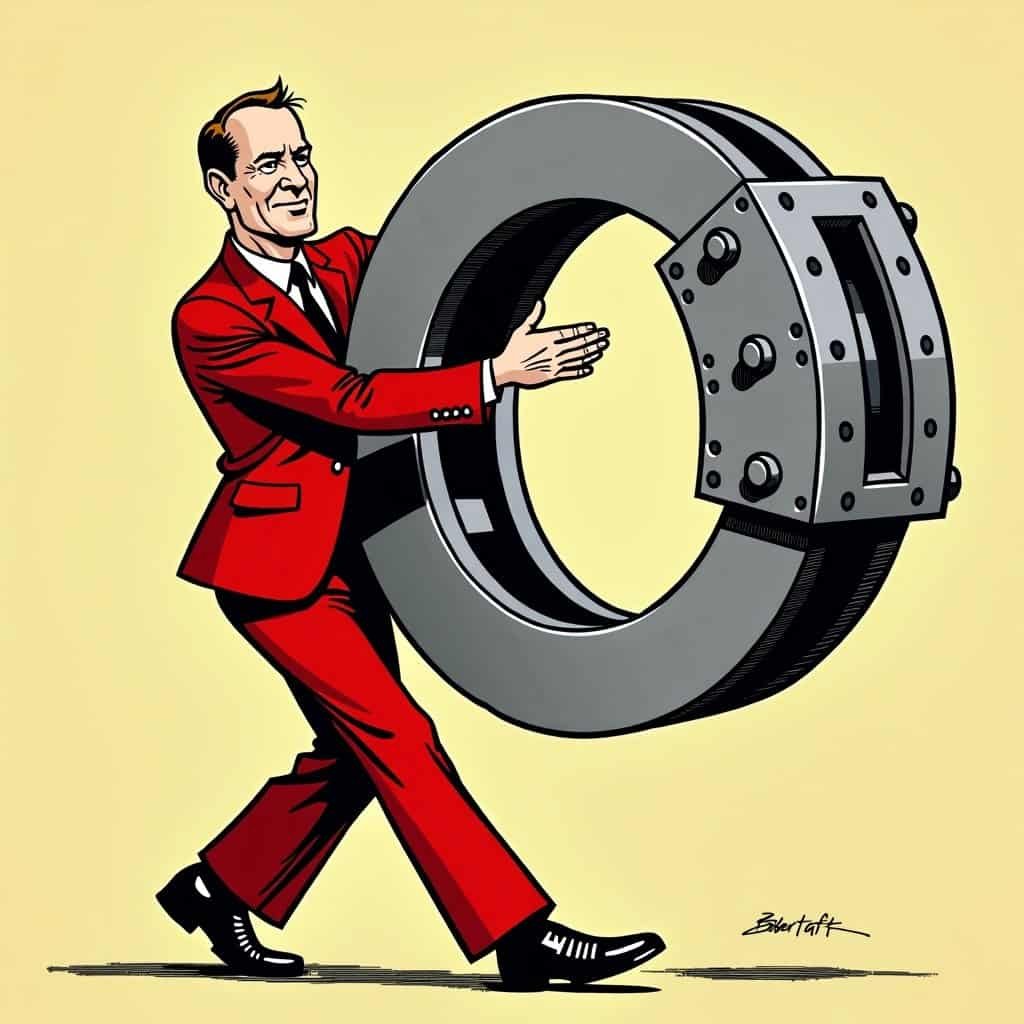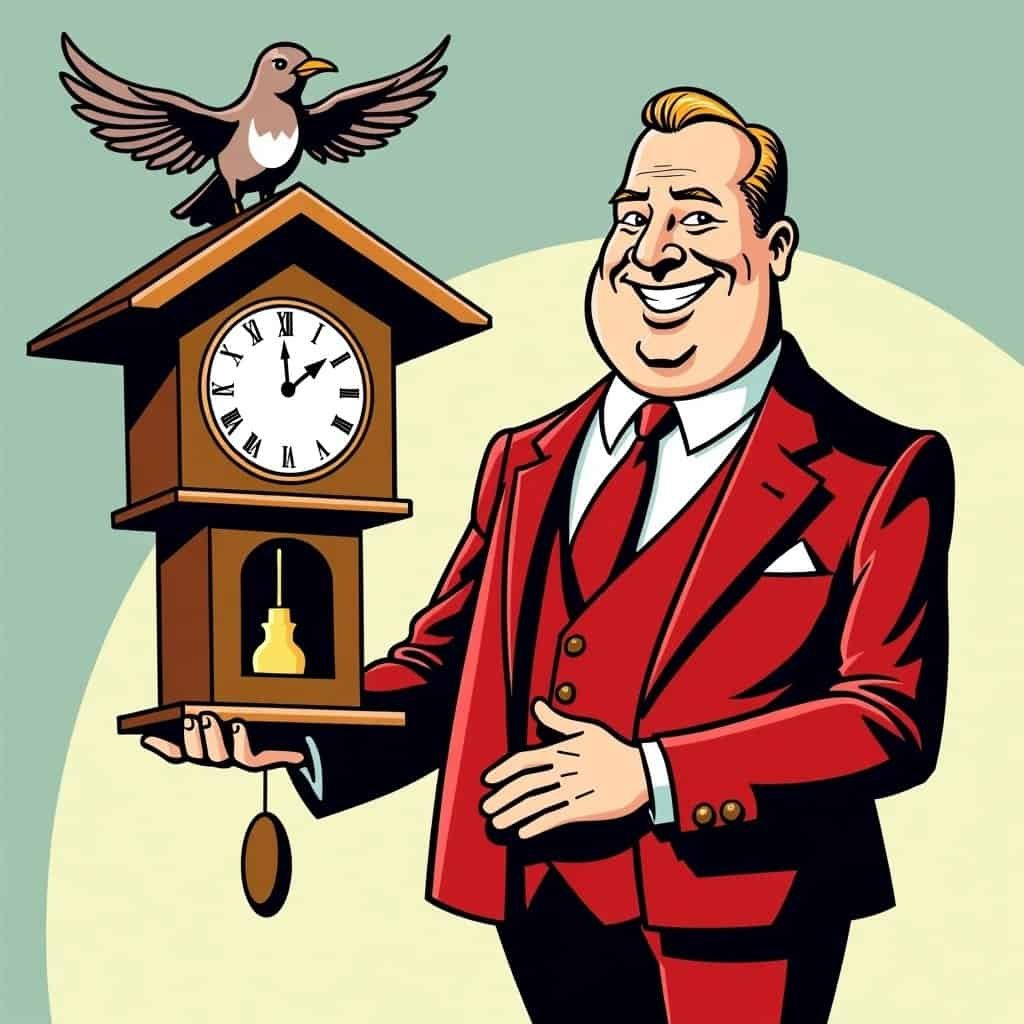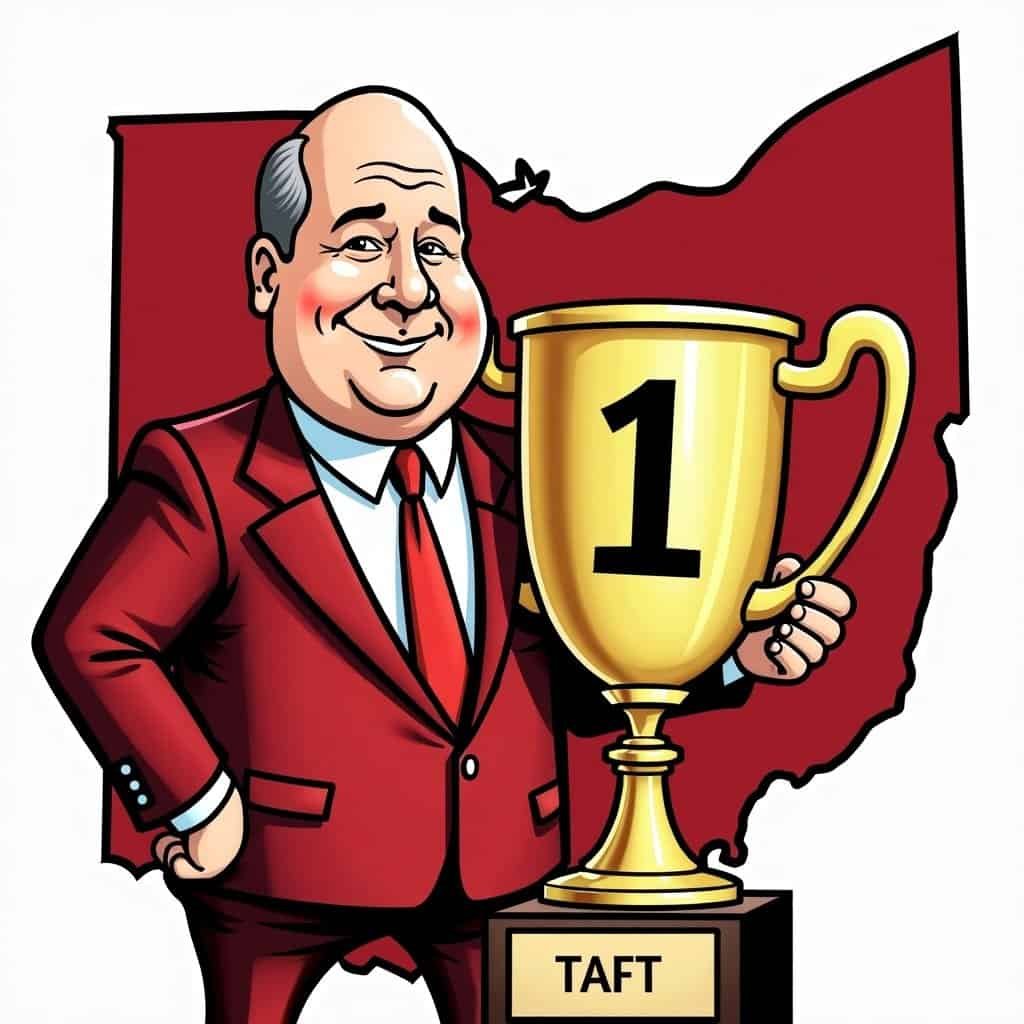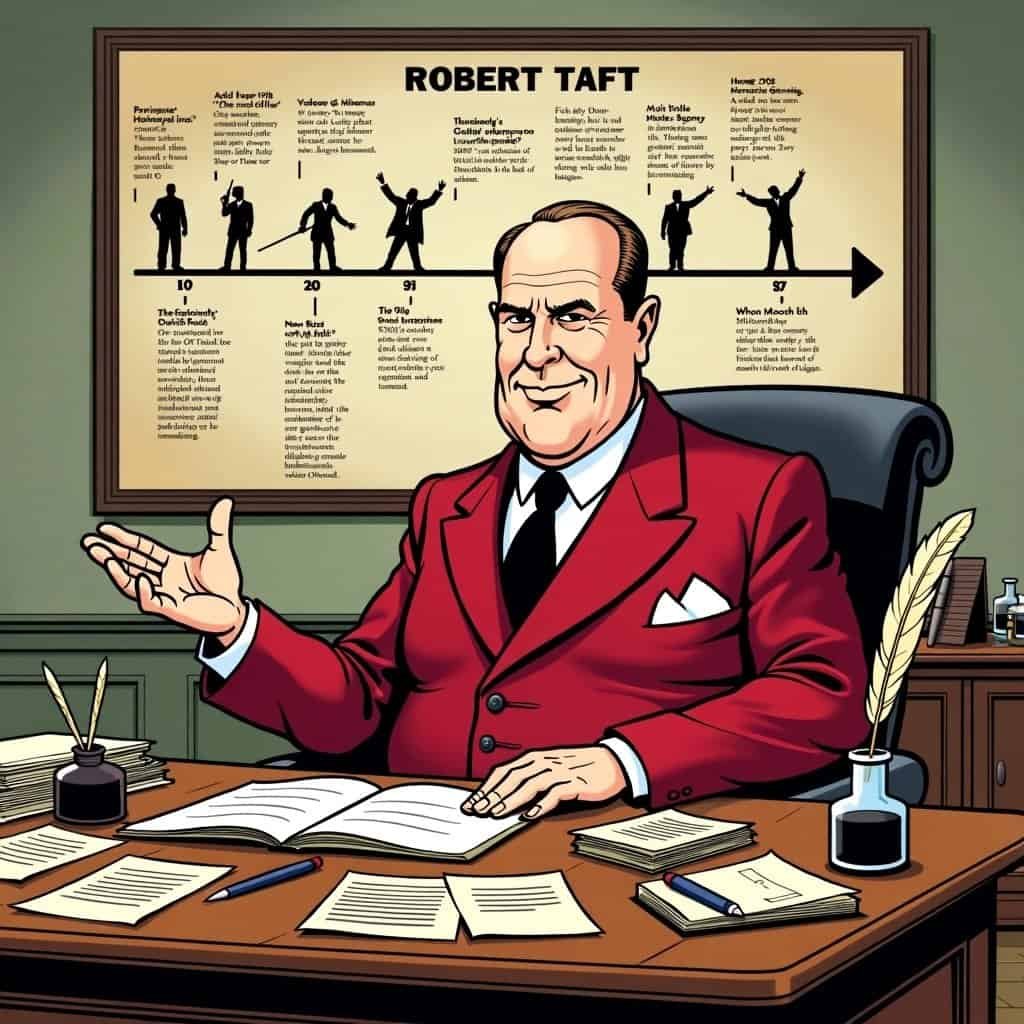Ah, Robert Taft—a name that makes big government fans quake and jolts conservative values out of their democratic slumber. Dubbed “Mr. Republican,” Taft didn’t mince words when it came to oversized socialist projects trying to sneak into American governance. His most entertaining crusades? Fighting tooth and nail against public works programs after the Great Depression, which were the brainchild of none other than FDR, the maestro of federal expansion himself.
Picture Taft, a Yale law grad, giggling himself to sleep as he pored over the mountains of red tape that seemed to sprout overnight from Roosevelt’s New Deal. The idea of the government morphing into some sort of community fix-it man, patching up everything from potholes to pyramids, flew in the face of the logical simplicity Taft held dear. Can you imagine Robert, pen at the ready, brushing off those fancy public projects as “boondoggles”? His words, not mine—but spot on. Did we really need bridges to nowhere or roads with bureaucratic bodyguards? That, my friends, was a liberal’s dream and a conservative’s worst nightmare.
Fiscal Responsibility: Taft’s Cornerstone
Through a conservative lens, Taft was the poster boy for fiscal responsibility. He argued that ballooning deficits were tied to fancy social programs that put a damper on individual success. While liberals were like kids in a candy store, drooling over wealth redistribution schemes, conservatives felt like the responsible adults, armed with wisdom and logic instead of sugar-coated promises. Those championing massive government intervention seem to forget those pesky economic laws—you know, the ones that actually built America.
Taft’s Conservative Principles
- ✅ Limited government intervention
- ✅ Fiscal responsibility
- ✅ Private sector innovation
- ✅ Individual liberty
- ✅ Free market economics
At its core, Taft’s stance against these public works programs laid out a defensive strategy that conservatism still uses today. By championing private sector innovation over taxpayer-funded escapades, conservatives believe freedom rings loudest when individuals—not governments—chart their own course through life. Taft would probably see today’s bipartisan infrastructure squabbles as a fun throwback to those Great Depression-era debates: Who’s got the better plan to get America back on track? The New Deal-loving liberals or the entrepreneurs with skin in the game?
Taft’s Ideas in Modern Times
It’s fun to imagine how Old Bob would react to today’s proposals for government expansion wrapped in progressive ideals. Would he flash that trademark grin, knowing his timeless ideas about self-reliance and freedom from government overreach were still going strong? Or would he let out a tiny sigh, once again seeing bureaucratic extravagance clash with good old conservative common sense?
But here’s the bottom line: whether we’re talking about Roosevelt’s alphabet soup agencies or today’s tech-driven schemes, it’s still Taft’s spirit pushing Republicans forward, keeping that conservative motto alive: let freedom take the wheel!






